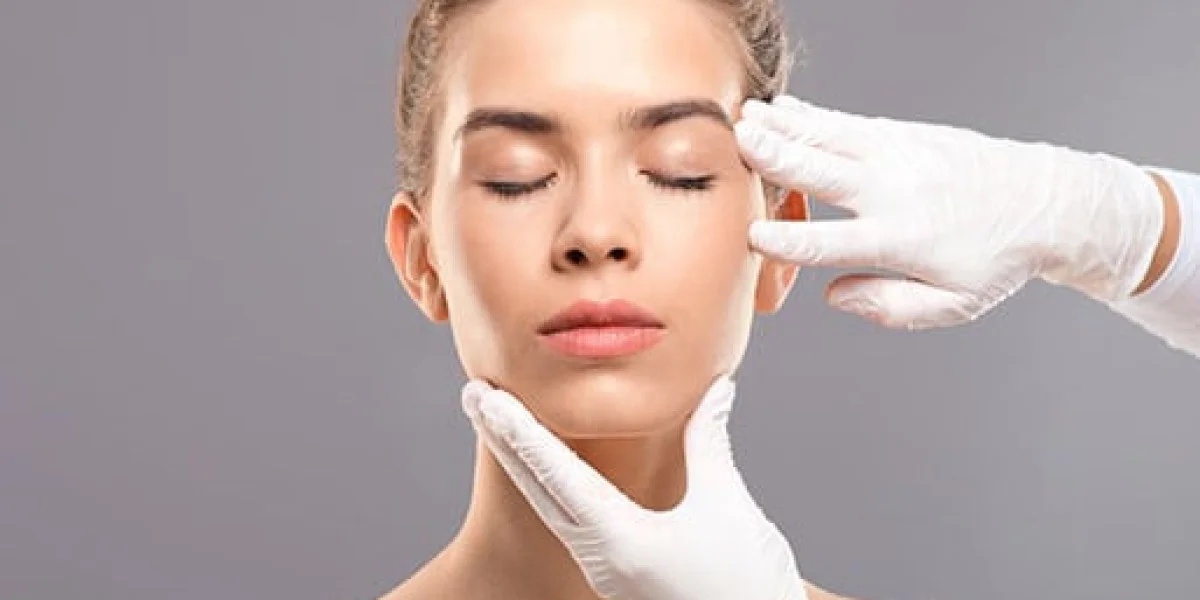Rhinoplasty in Dubai has become a popular choice for individuals seeking to enhance their appearance and boost their confidence. Whether it's for aesthetic or functional reasons, many wonder about the ideal age to undergo nose surgery. The right age for rhinoplasty depends on several factors, including physical development, emotional readiness, and the desired outcome. In this article, we will explore the best age for rhinoplasty in Dubai(تجميل الأنف في دبي )and the considerations that come with it.
Age Considerations for Rhinoplasty:
Rhinoplasty is a highly customizable procedure, but the timing can have a significant impact on the outcome and recovery. Here's a breakdown of the key age factors to keep in mind when considering this surgery.
1. Early Adulthood: The Ideal Time for Many:
For most individuals, the best age to get rhinoplasty is in their late teens or early twenties. This is when the nose has usually completed its growth, making it an ideal time for surgery.
- Developmental Considerations: The bones and cartilage of the nose typically finish growing by around age 18 for females and 21 for males. Surgery during this time ensures the procedure addresses a fully developed structure.
- Psychological Readiness: At this age, most individuals are emotionally mature enough to handle the changes and expectations that come with rhinoplasty.
2. Teenagers: When is it Safe to Consider Surgery?
While many people seek rhinoplasty in their twenties, some teenagers may also be candidates. However, there are important factors to consider.
- Mature Enough for Surgery: Teenagers must be emotionally mature and fully understand the long-term commitment of recovery and potential risks.
- Physical Development: Rhinoplasty is generally not recommended before the age of 16 for females and 18 for males, as the nose may still be growing during these years.
- Medical Evaluation: It is crucial to consult with a board-certified surgeon to determine if the teen's nose is ready for surgery. If they are still growing, there may be limitations in performing the procedure safely.
3. Adults: A Consideration for Changing Features:
For adults in their thirties, forties, or even fifties, rhinoplasty can still be highly effective, especially if there are functional or cosmetic concerns.
- Cosmetic Enhancement: Many adults seek rhinoplasty to enhance the appearance of the nose after years of dissatisfaction or as a way to address changes that occur with aging.
- Correcting Breathing Issues: Rhinoplasty in adulthood can also be used to fix breathing issues caused by structural deformities like a deviated septum.
- Consultation is Key: Adults should be in good health, and they may need to discuss any pre-existing conditions that could affect recovery.
4. Older Adults: Are You Too Old for Rhinoplasty?
For those in their sixties and beyond, rhinoplasty can still be an option, but certain considerations must be taken into account.
- Skin Elasticity and Healing: As we age, the skin loses elasticity, and healing may take longer. Older patients may also face additional challenges with swelling and recovery.
- Health Conditions: Underlying health issues such as diabetes, heart disease, or respiratory conditions must be evaluated by a healthcare provider before moving forward with surgery.
- Realistic Expectations: Older adults should have realistic expectations about the outcome. Rhinoplasty may not have the same dramatic results as it does in younger patients due to changes in facial structure with age.
Factors to Consider Before Surgery:
Age is just one consideration when deciding if rhinoplasty is right for you. There are other factors to take into account before moving forward with the procedure.
1. Emotional and Psychological Readiness:
Rhinoplasty(تجميل الأنف ) is not just a physical procedure; it’s an emotional one too. You must be ready to make a lasting change and accept the results.
- Body Image: Ensure that you're seeking surgery for the right reasons, such as enhancing your appearance or fixing a functional issue.
- Expectations: Having realistic expectations is key. Rhinoplasty can significantly improve your appearance, but it’s important to understand that perfection isn’t always possible.
2. Health and Medical Conditions:
A thorough medical evaluation is necessary to ensure that you are healthy enough for surgery.
- Pre-existing Conditions: Certain conditions, such as heart disease, respiratory issues, or blood disorders, may increase the risk of complications.
- Medications: Make sure your surgeon is aware of any medications you are taking, as some medications can interfere with the healing process.
3. Desired Results:
The type of rhinoplasty you need depends on your goals and the changes you wish to achieve.
- Aesthetic Goals: Do you want to reduce the size of your nose, fix a bump, or alter the shape? Consult with your surgeon to understand the scope of the surgery.
- Functional Goals: Rhinoplasty can also improve breathing by correcting structural issues like a deviated septum or nasal valve collapse.
4. The Consultation Process:
Before deciding on surgery, it's essential to meet with a qualified surgeon who can assess your nose, discuss your goals, and outline the surgery plan.
- Surgeon Expertise: Choose a surgeon who specializes in rhinoplasty and has experience with your specific goals.
- Before-and-After Photos: Review before-and-after photos of past patients to get an idea of the results you can expect.
- Clear Communication: Discuss your concerns, expectations, and any potential risks with your surgeon to ensure you are well-prepared.
Conclusion:
The best age for rhinoplasty depends on several factors, including your physical development, health, and emotional readiness for the procedure. While most patients are ideal candidates in their late teens to early twenties, rhinoplasty can be effective for adults and even older patients, as long as the surgeon ensures the procedure is safe and appropriate.









